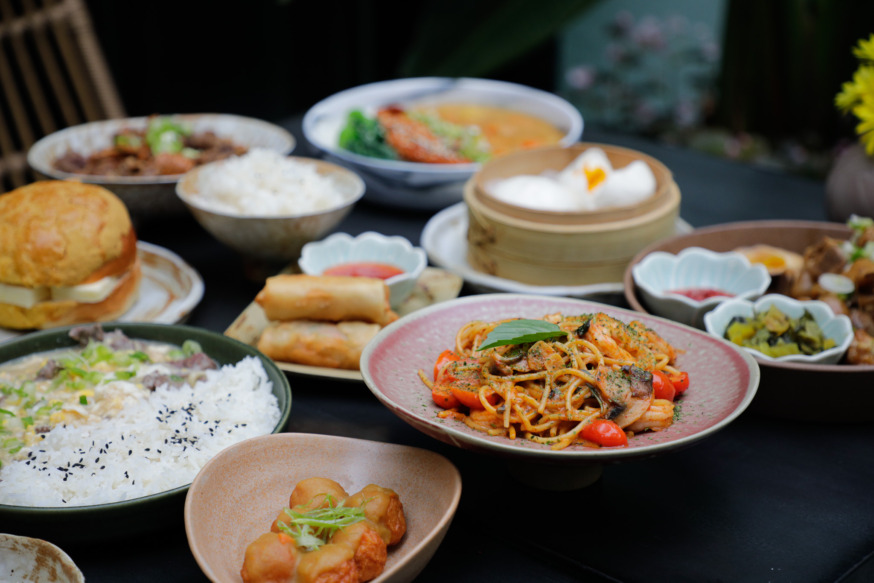
Photo Courtesy of Andrew Yuan
Oct. 18, 2023 By Amanda Salazar
Hong Kong style oxtail stew with garlic bread, crispy chicken and ube mochi waffles, pork belly bao buns and a ginger mojito — this is just a small sampling of what’s on the menu at Knock Knock, a 5-month-old East Asian restaurant that opened in Long Island City in the spring.
Located at 42-44 Crescent St., the business is just two blocks south of Queensboro Plaza near Court Square.
Open for brunch, lunch and dinner, Knock Knock was inspired by the owners’ Chinese heritage and by Japan’s Izakaya concept, serving dim sum, soups and small plates. Izakaya establishments are like informal pubs where people can go to drink and have small meals.
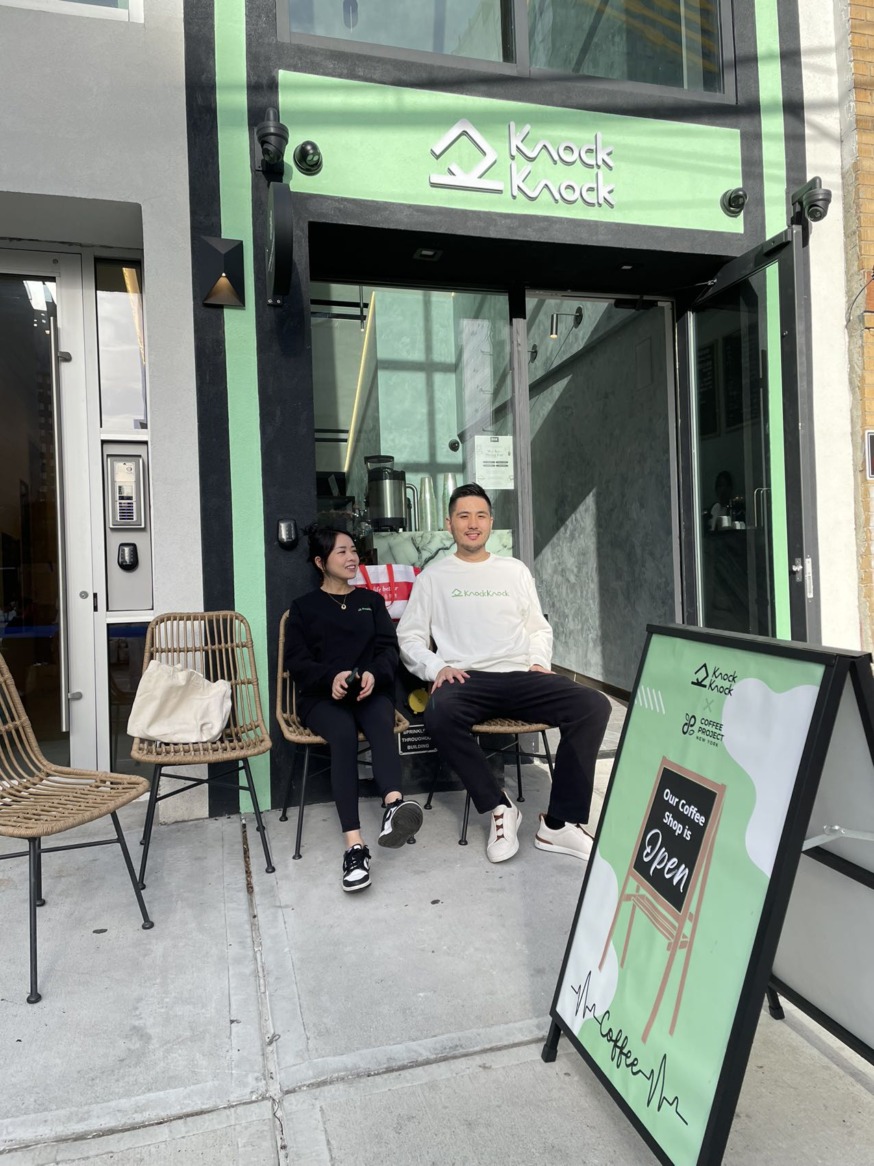
Photo Courtesy of Andrew Yuan
“We are a great addition as a food and beverage option for this community because no Asian restaurants [in Long Island City] specialize in Hong Kong dishes, Cantonese dishes and dim sum, so we really want to create a food program and share with the local community,” Knock Knock founder and co-owner Andrew Yuan said. “I want to offer another food and beverage option to the Long Island City community.”
But what makes Knock Knock really unique, aside from the great food and beautiful décor, is that it’s not always a restaurant.
The front room of the business is a coffee shop, which is open daily from 8 a.m. until 5 p.m. Customers coming to dine in at the restaurant pass through the café into a larger dining room at the back of the building. From there, diners can also access the enclosed backyard patio to eat outdoors during good weather.
Due to this format, Knock Knock actually houses two bars — one for coffee and one for cocktails. The coffee bar sells artisanal blends and specialty drinks, as well as standard café fare like Americanos and cappuccinos. This portion of the business is run in partnership with the Coffee Project New York, a local Asian woman-owned coffee brand and roastery. At the other side of the restaurant, the alcohol bar serves beer, wine, sake and cocktails, including specialty drinks like a lycheetini and a skinny pina colada.
“The concept itself is unique,” Yuan, a Long Island City resident, said. “You know, as a coffee shop and a restaurant under the same roof.”
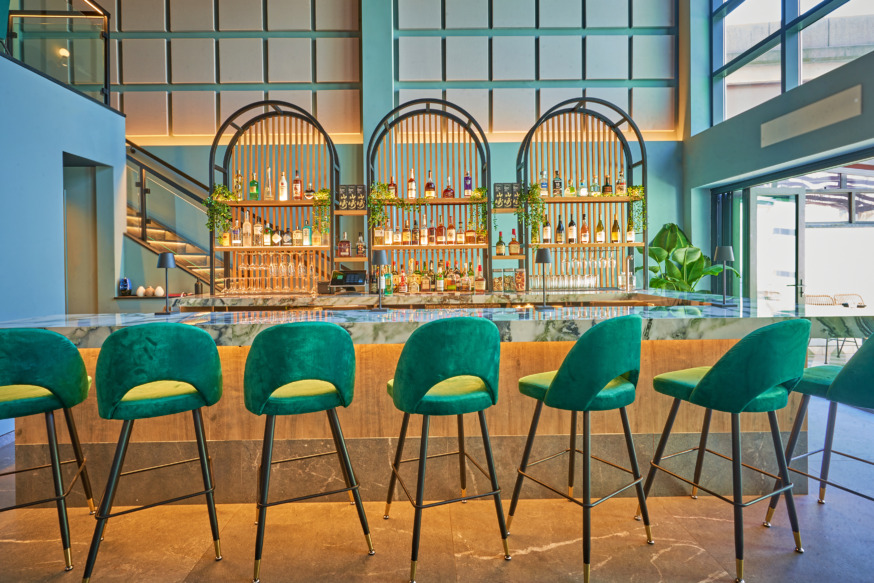
Photo Courtesy of Andrew Yuan
Knock Knock’s name was inspired by Cantonese tea culture. In this tradition, people will pour tea for each other and show their appreciation toward being served by tapping on the side of the table with their fingers to say thank you.
Yuan and his wife and co-owner, Seven Gu, came across this practice while having dinner with their Cantonese friend. Gu had asked the friend what the tapping meant.
The meaning behind the action left such an imprint on the couple that they decided to name their business after it.
“It just means thank you, like appreciation and gratitude toward others,” Yuan said. “We wanted to name the space after this meaning. Knock Knock to show appreciation, to show gratitude about this tea culture and to the Long Island City community.”
In addition to representing an appreciation of Long Island City and Cantonese culture, Knock Knock emblematizes appreciation of beauty, décor and atmosphere.
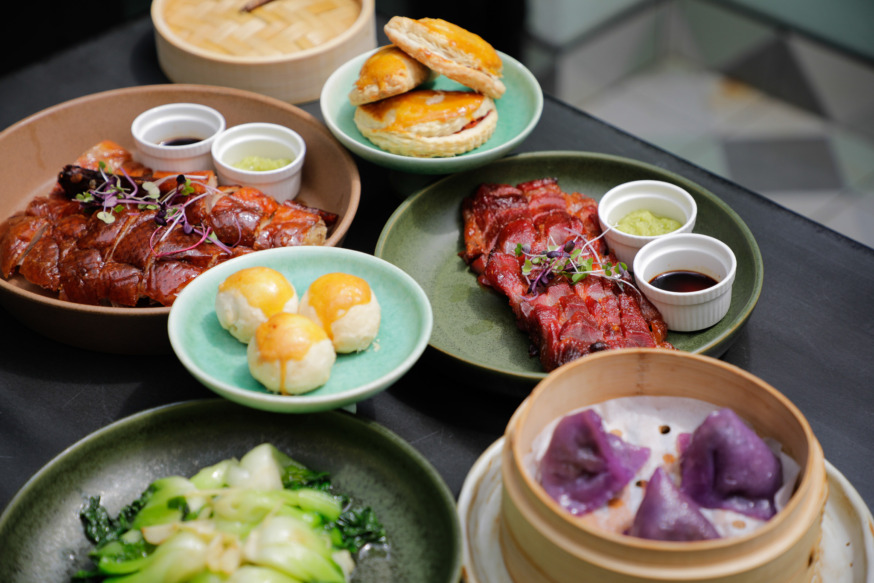
Photo Courtesy of Andrew Yuan
The bi-level dining space is modern, sleek and minimalist, with the intention of providing customers with a relaxed and comfortable ambiance. Knock Knock’s forest green, teal and cream color scheme meshes effortlessly with the leafy potted plants dotted around the restaurant. At the same time, the mezzanine level offers a more intimate, private space for a smaller number of diners.
“People need social interaction, so I built this space for people to celebrate and gather,” Yuan said.
This is Yuan’s second restaurant, although it is the first restaurant he has opened with Gu. In June 2020, he founded Ikebana Zen in Manhattan’s Hell’s Kitchen, a Japanese bar that also served small plates, cocktails and coffee through the Coffee Project New York. That business closed in March 2023, just one month before Knock Knock opened.
Yuan first got into the restaurant business after being diagnosed with thyroid cancers in the summer of 2019. At the time, he had just graduated from New York University with a master’s degree in integrated marketing. He decided to completely change course from the plans he had for his life. Instead of getting a career in marketing, he chose to open up a restaurant and, eventually, another restaurant.
Now, four years later, Yuan’s Knock Knock is bringing good food and good times to his community.
“Knock Knock represents appreciation, respect and gratitude in Cantonese tea culture,” Yuan said. “I want to pass the spirit to this neighborhood.”
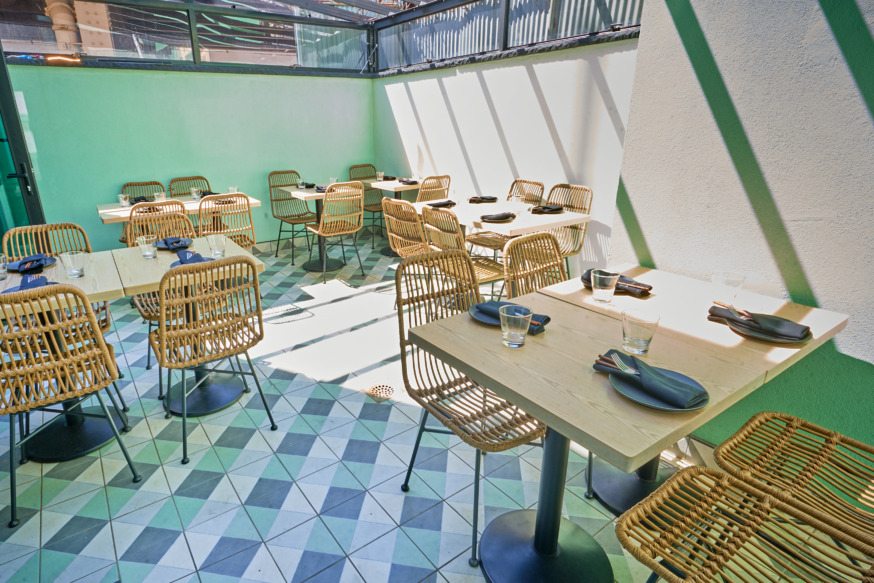
Photo Courtesy of Andrew Yuan
- *This story was first published in BORO Magazine’s October issue.
